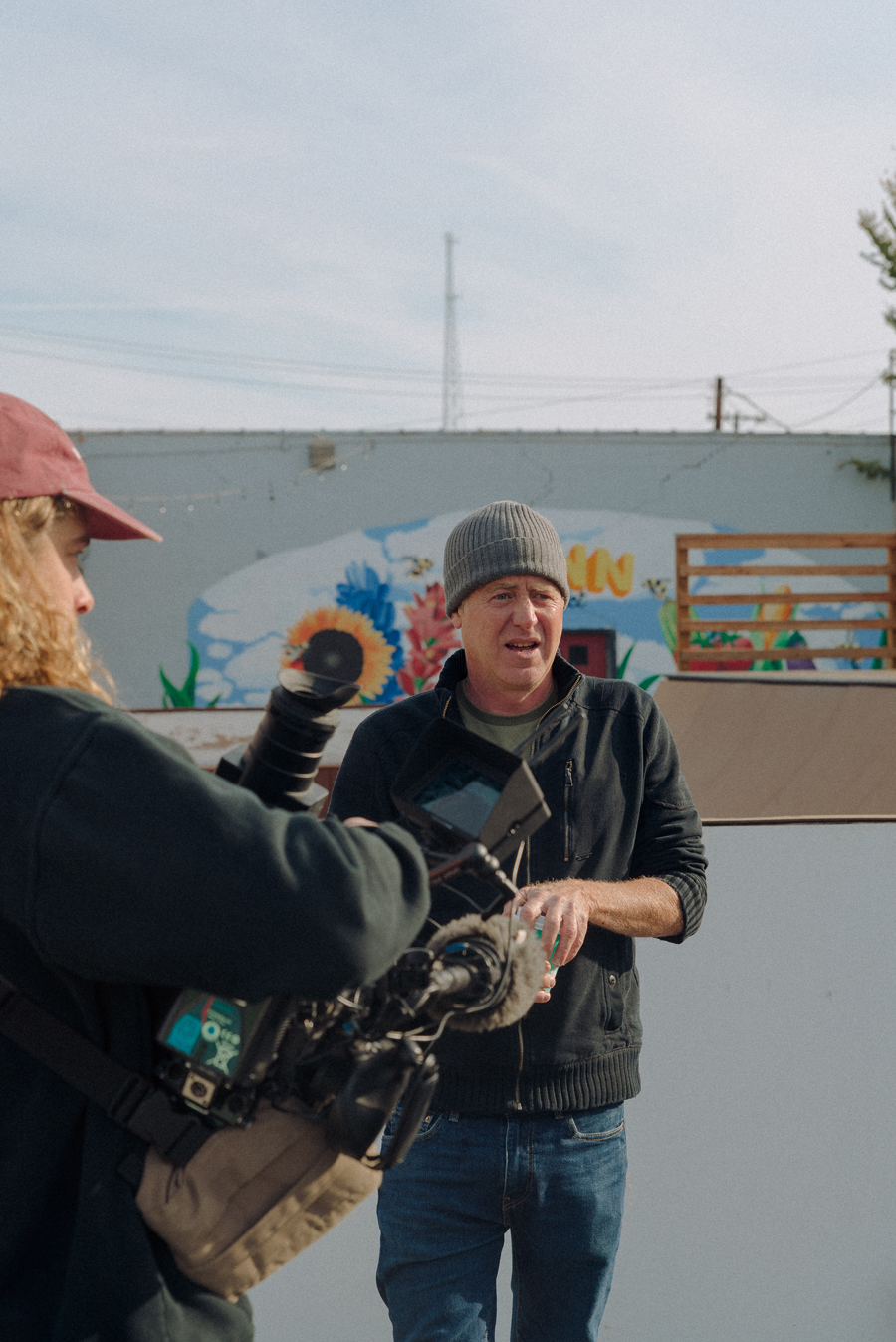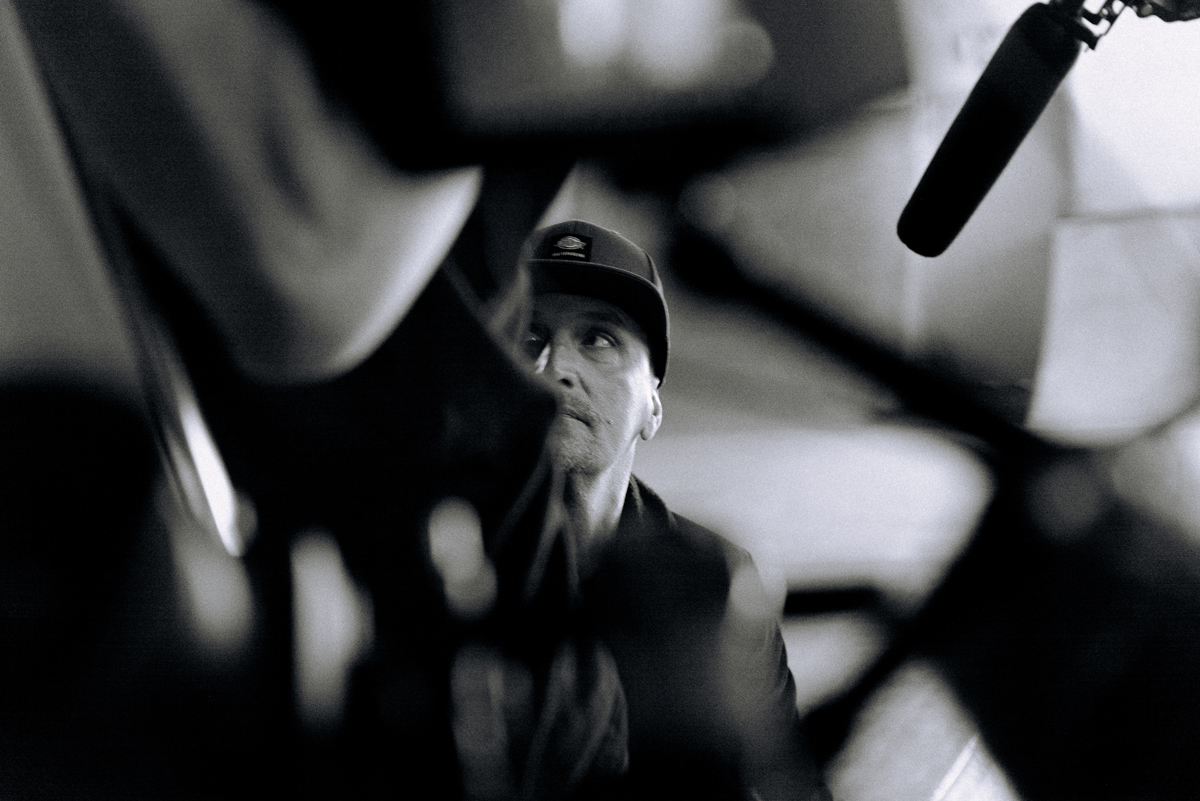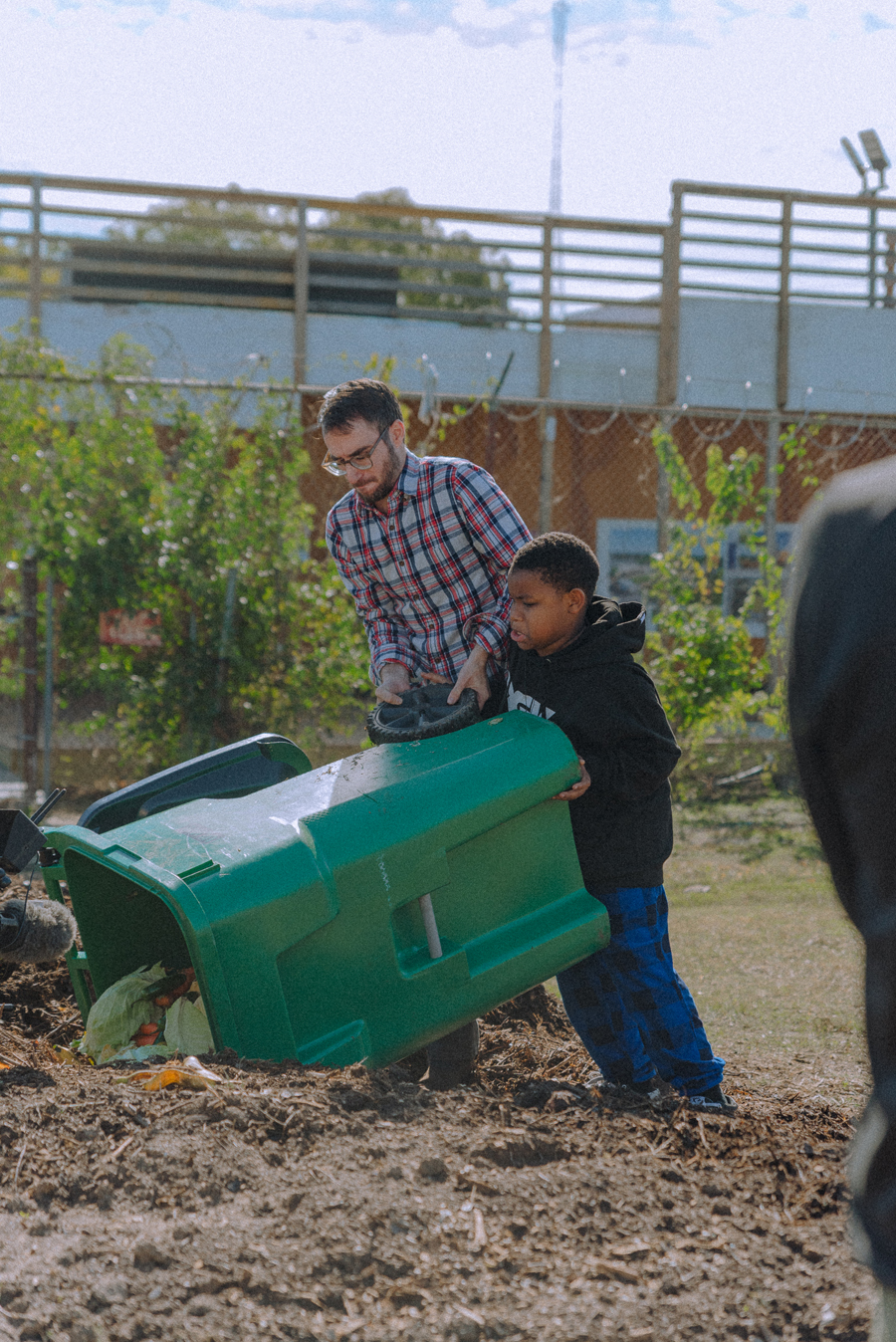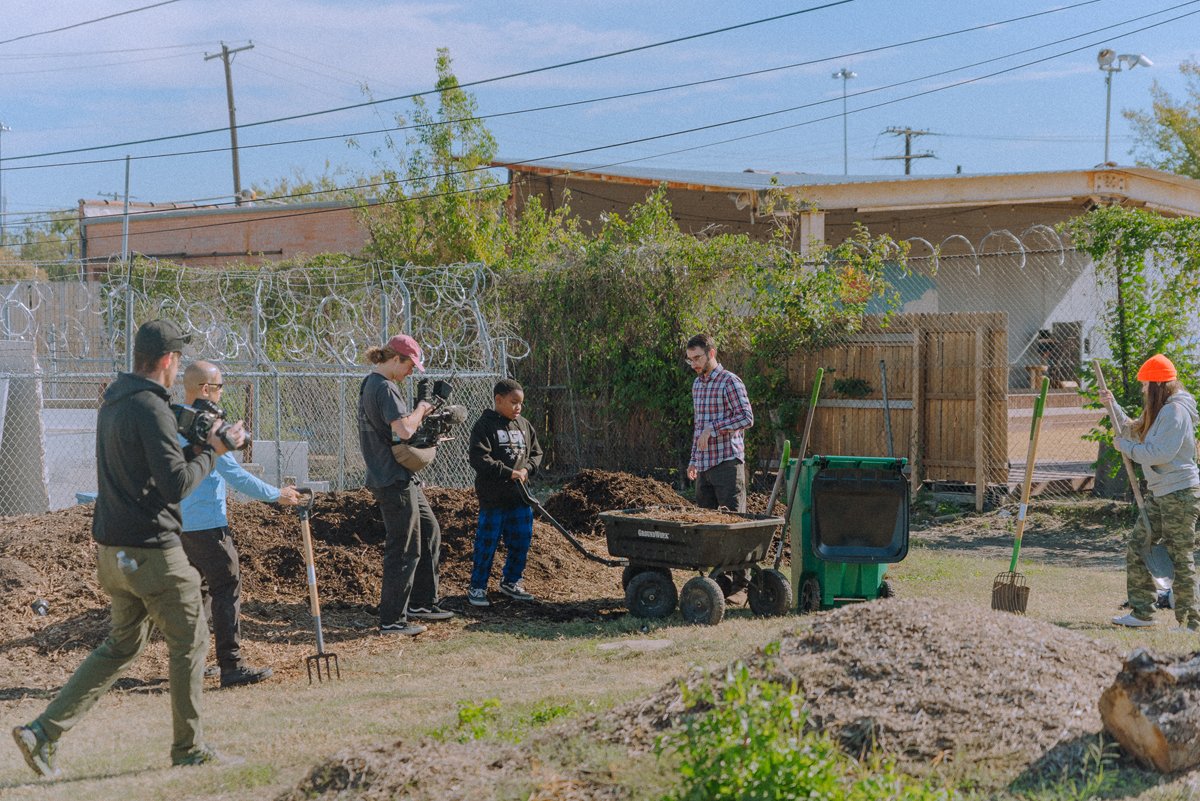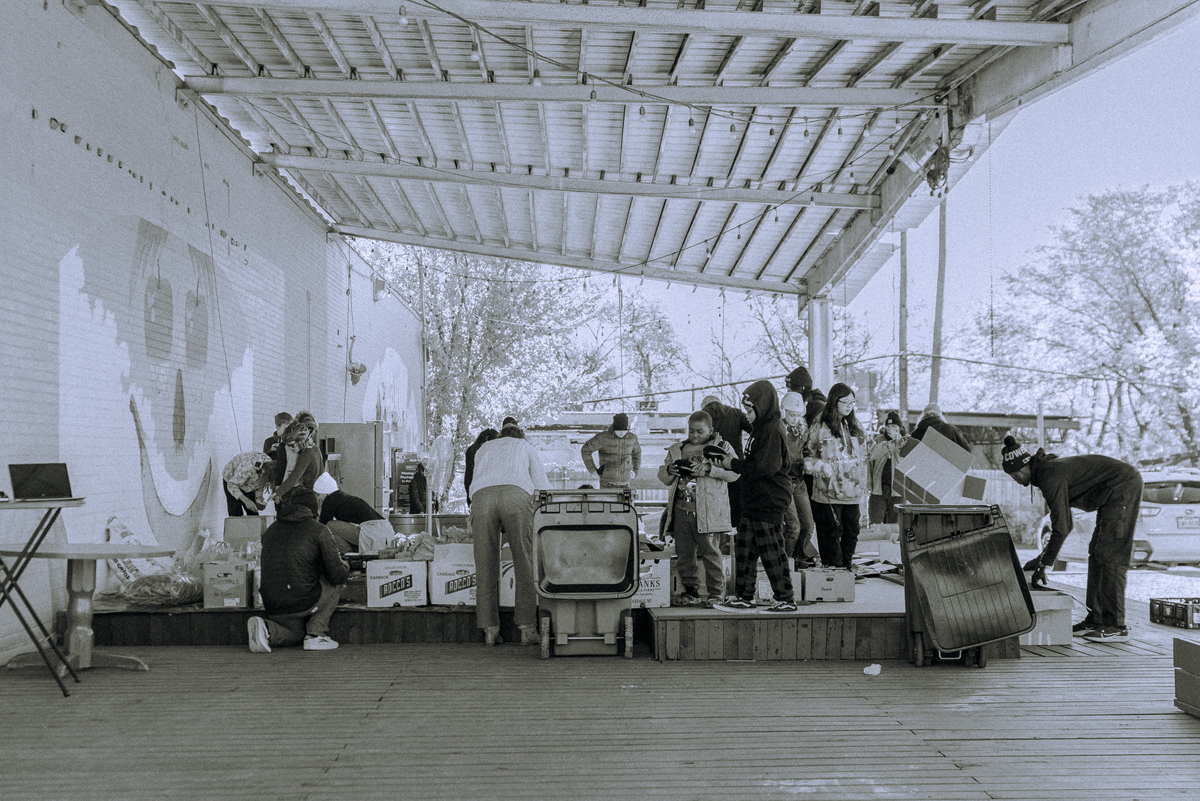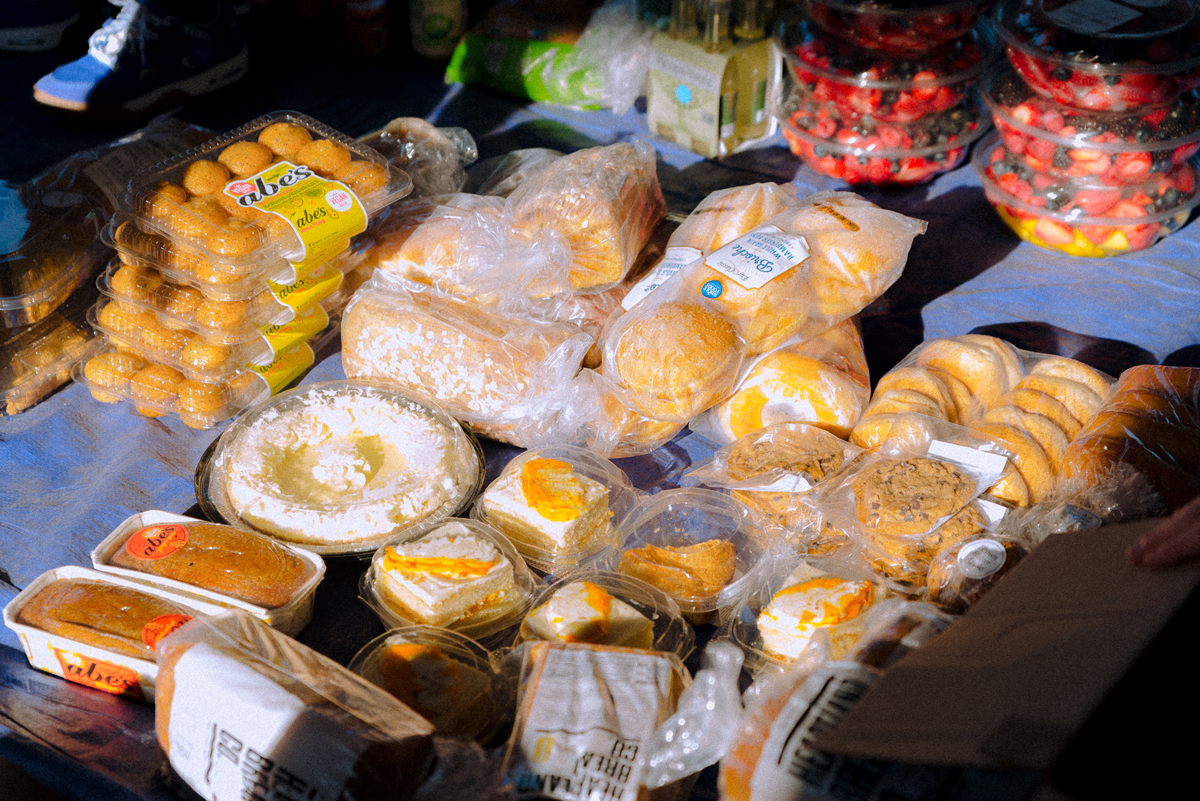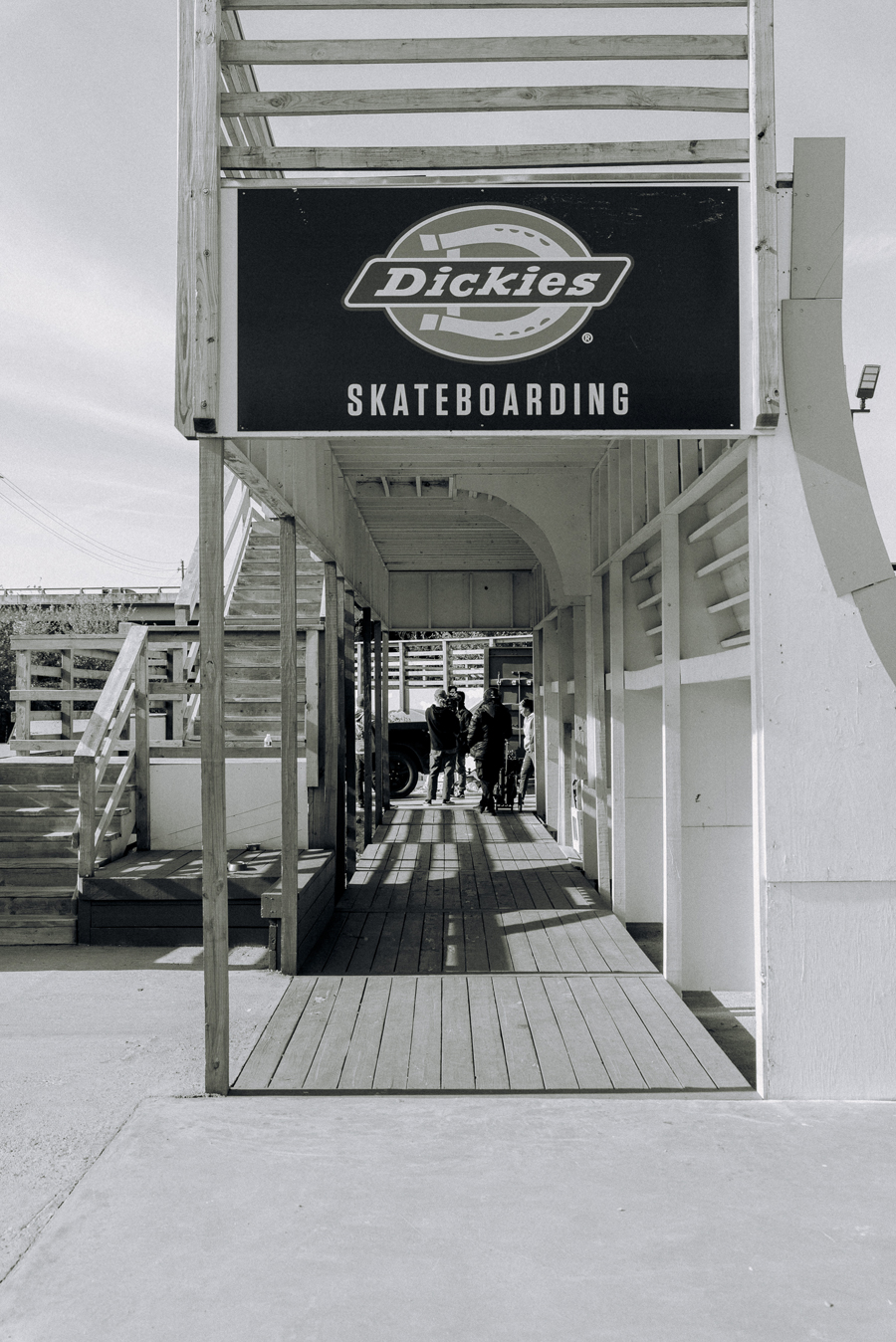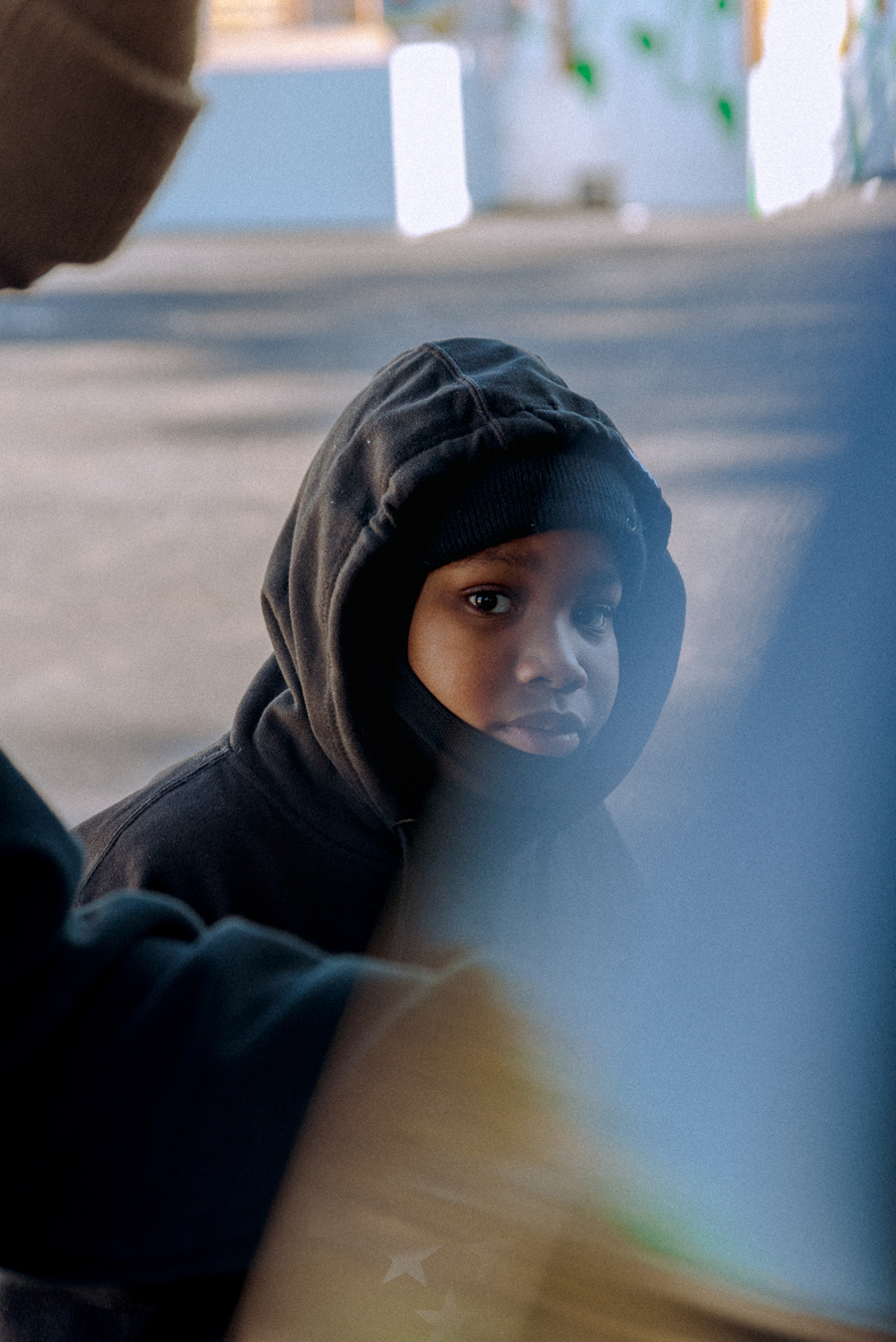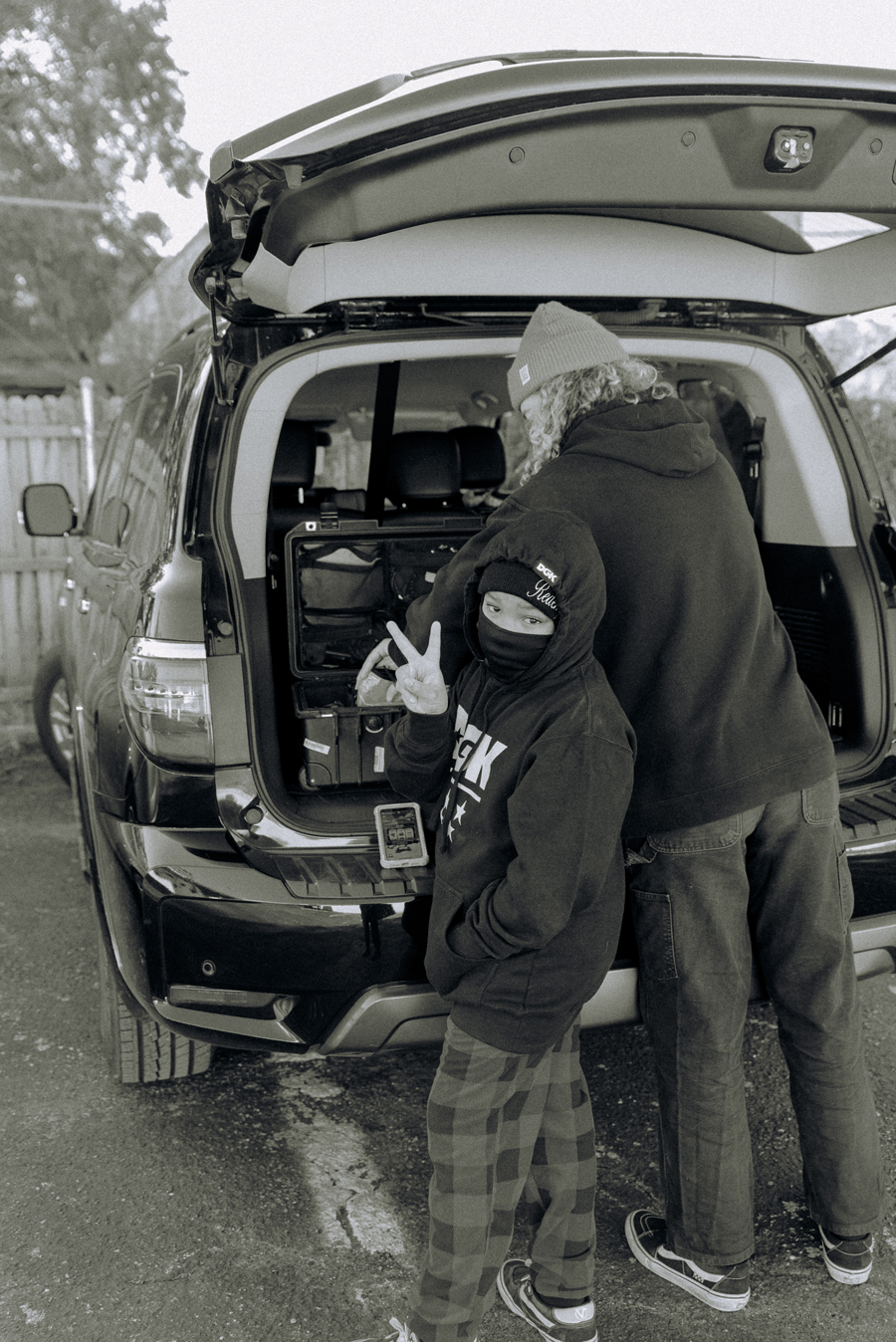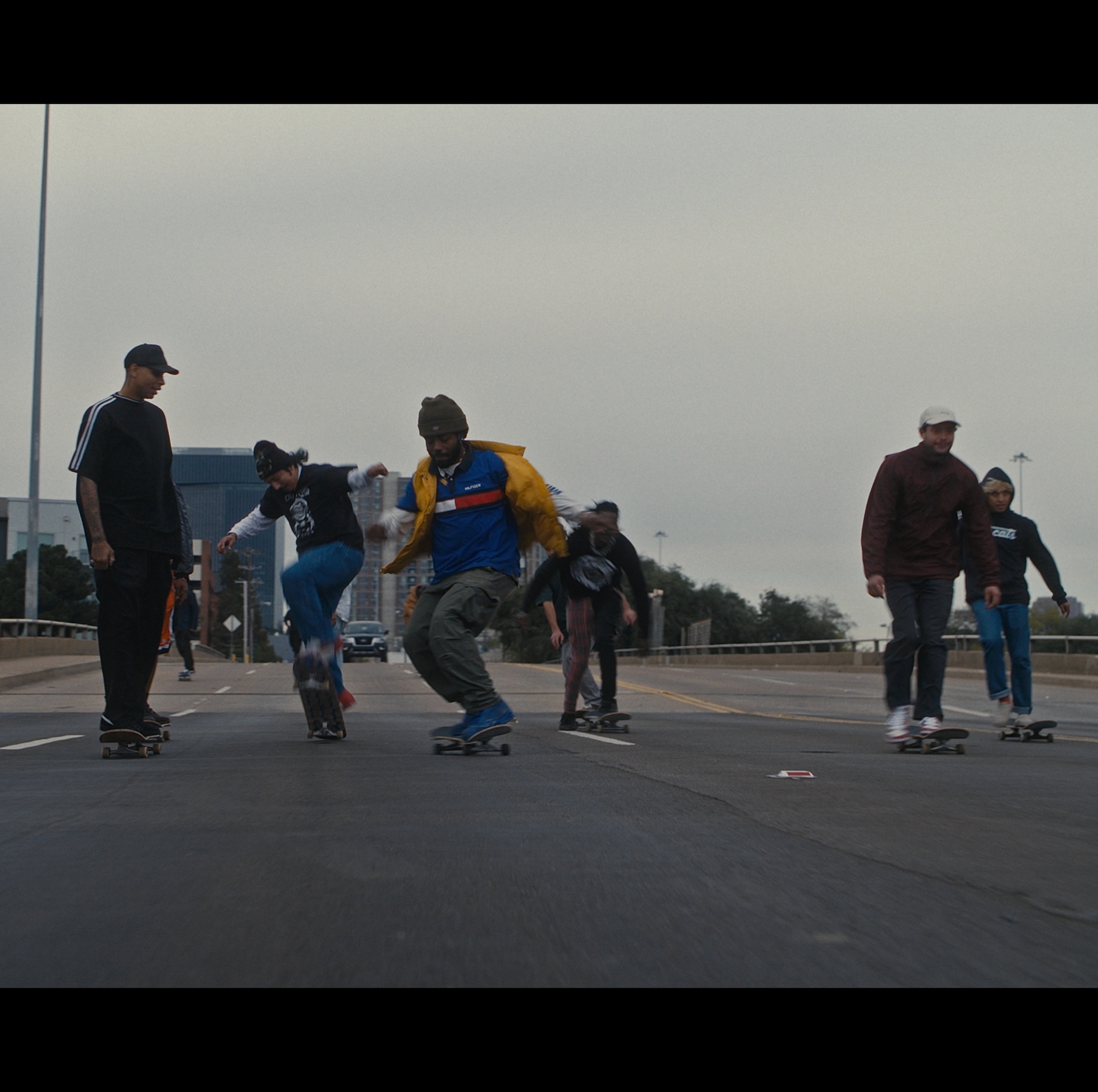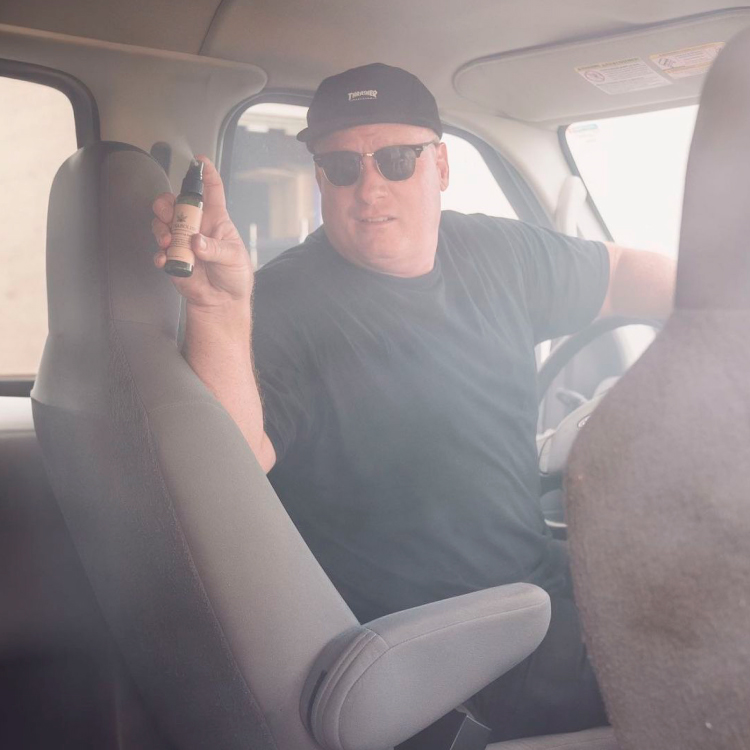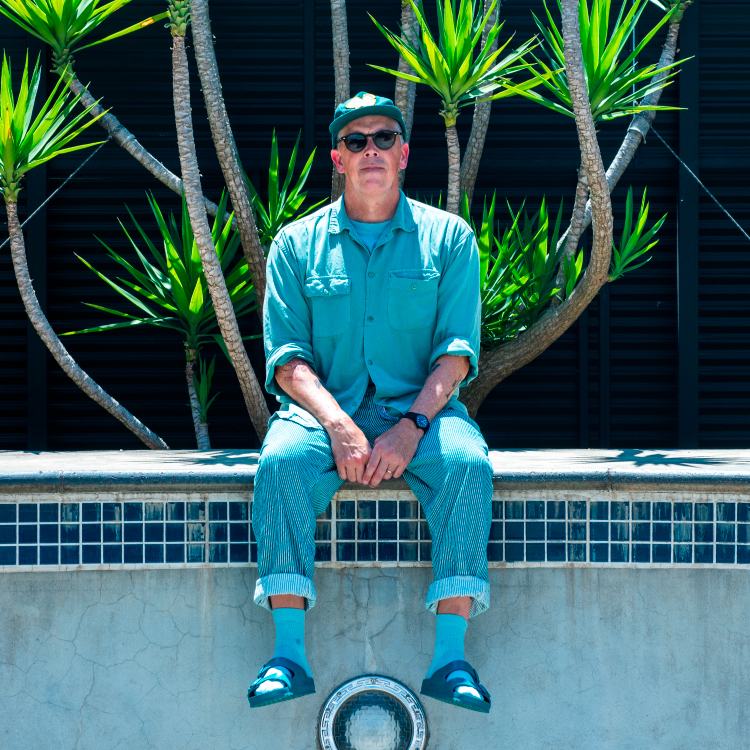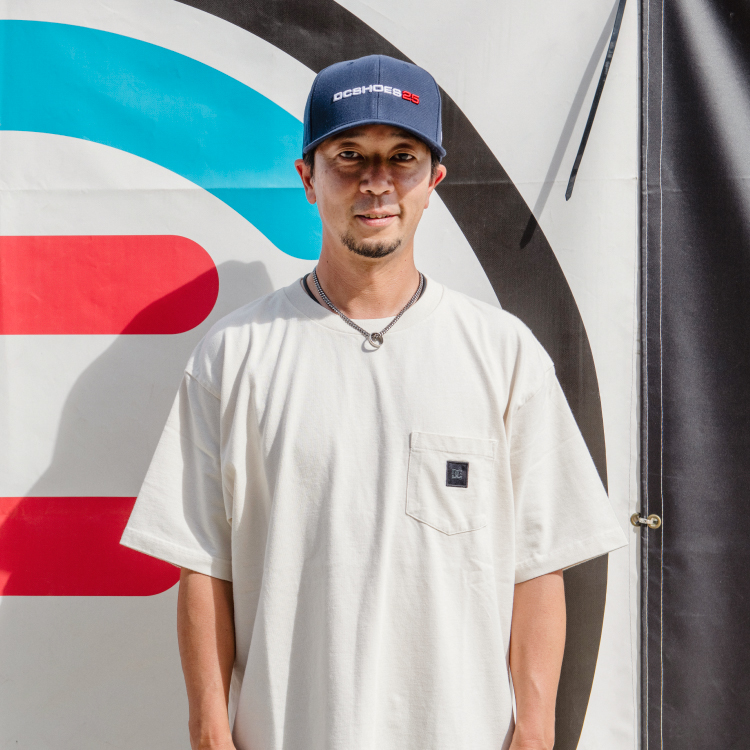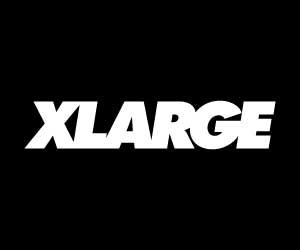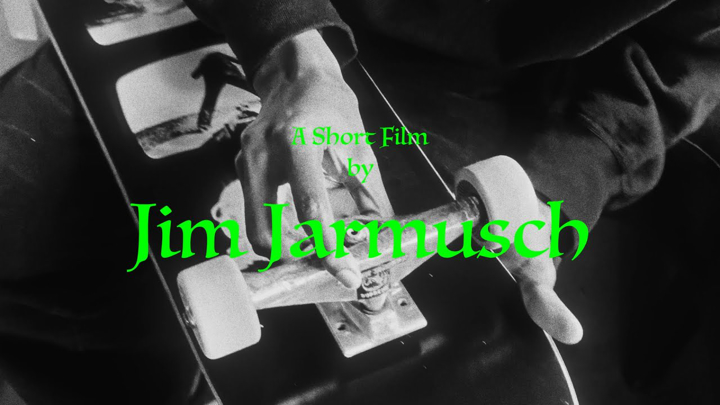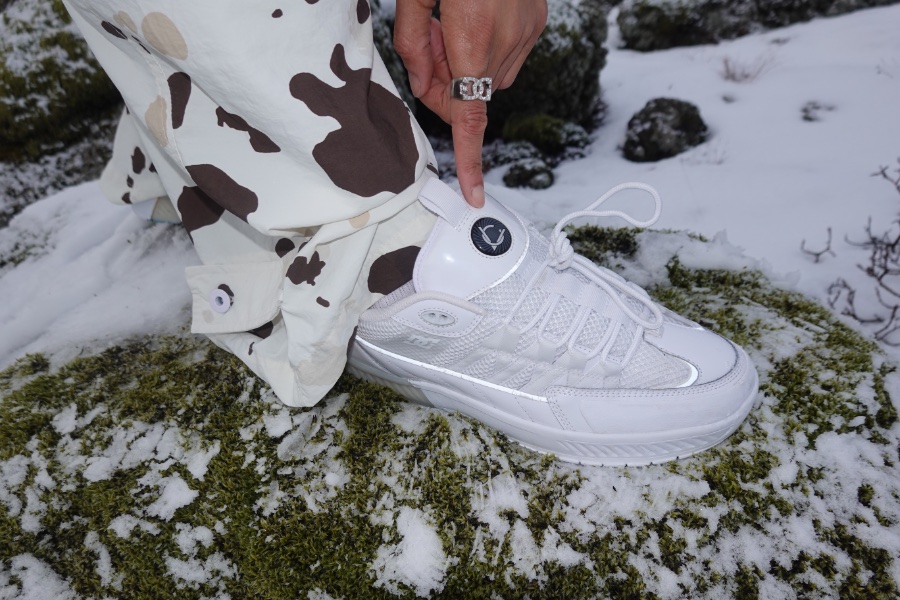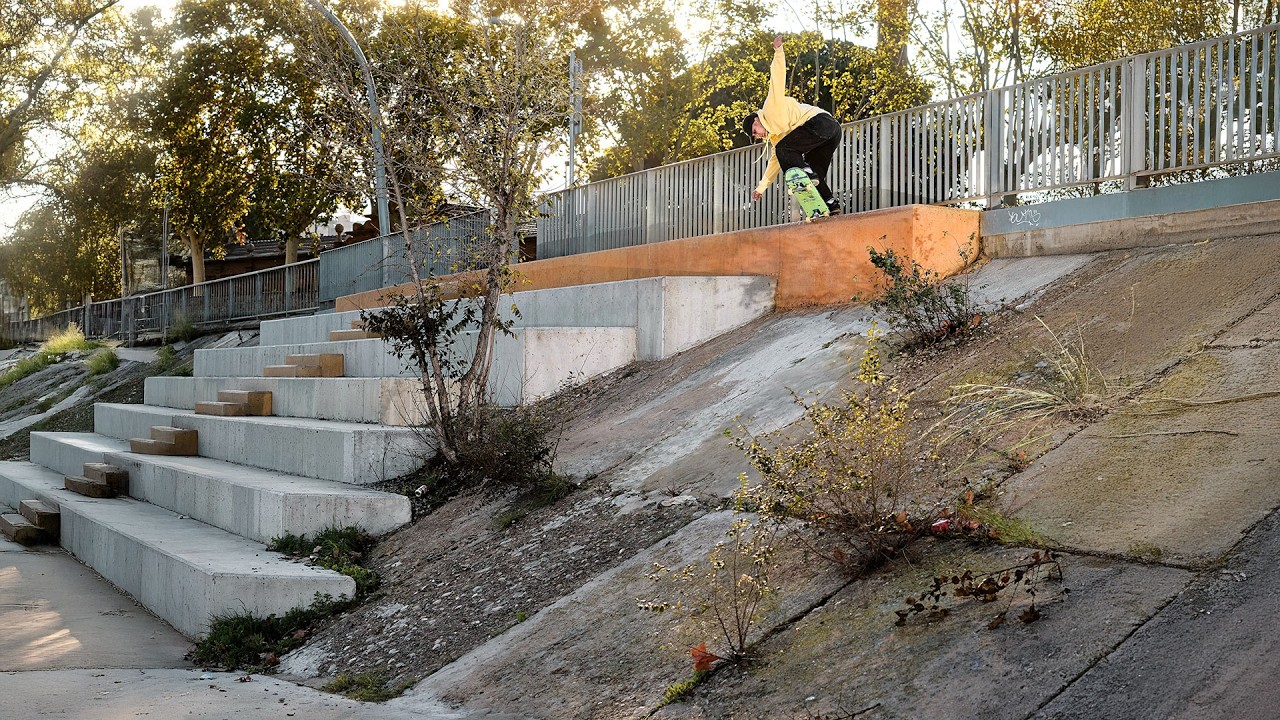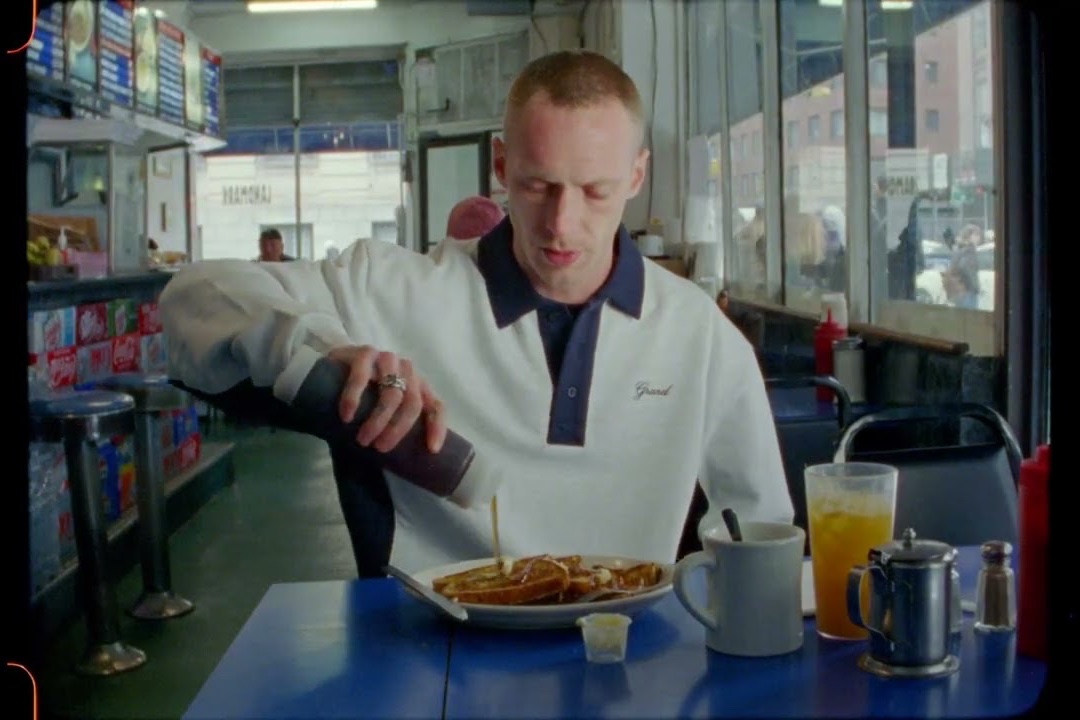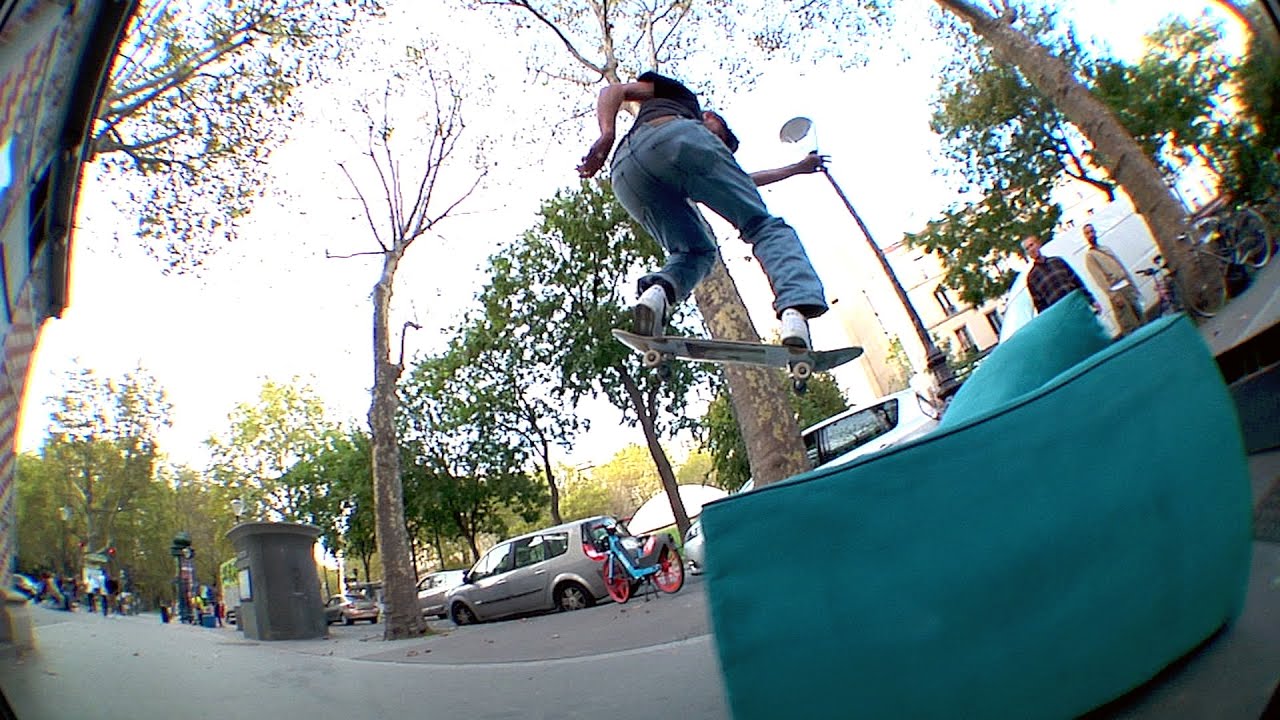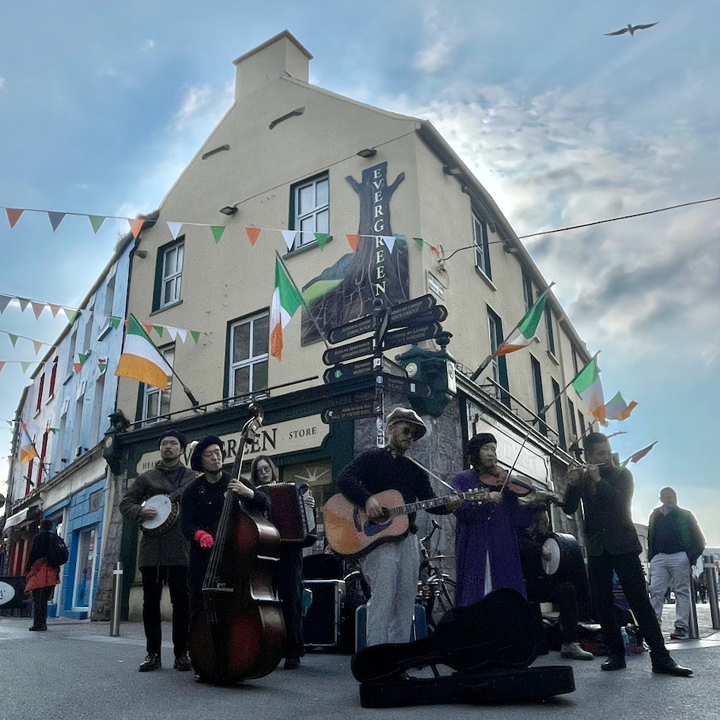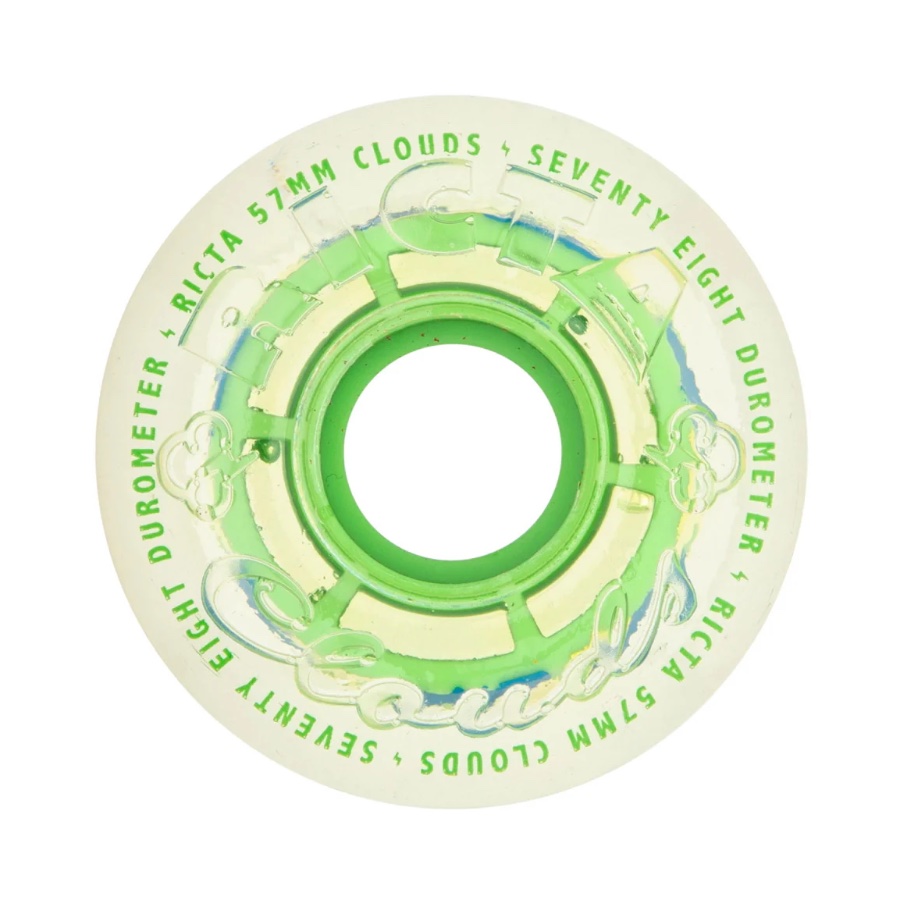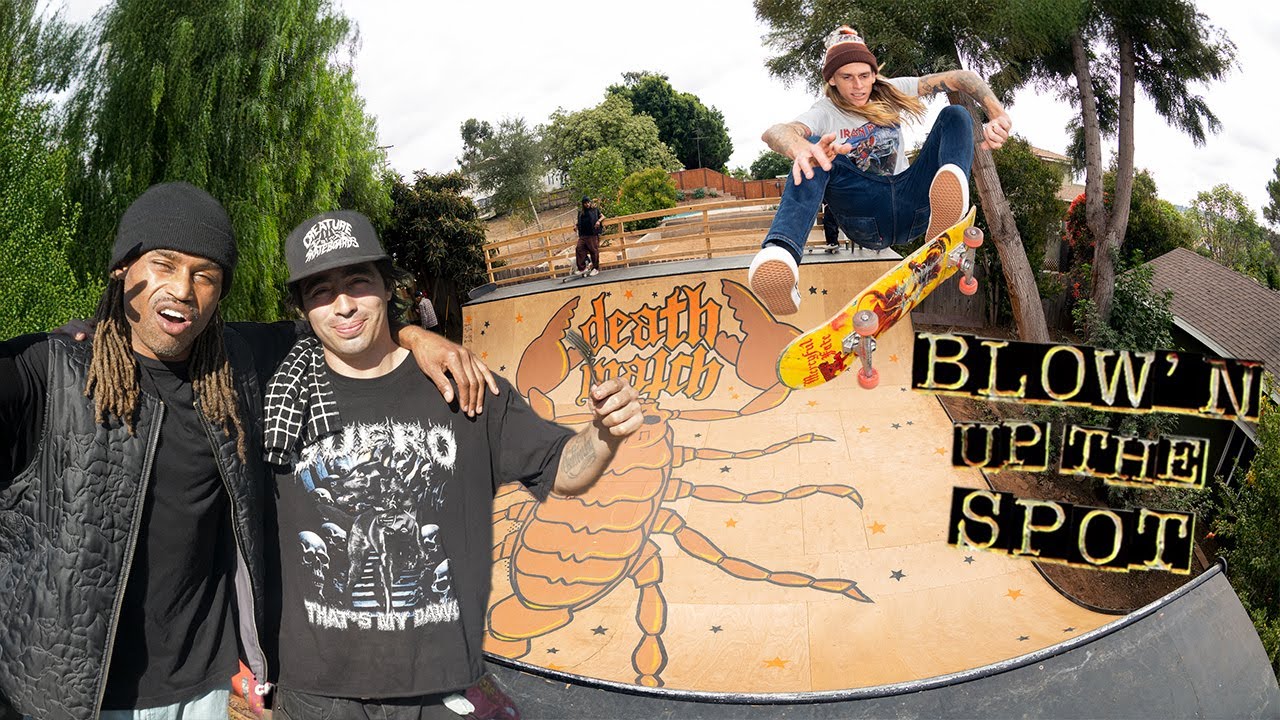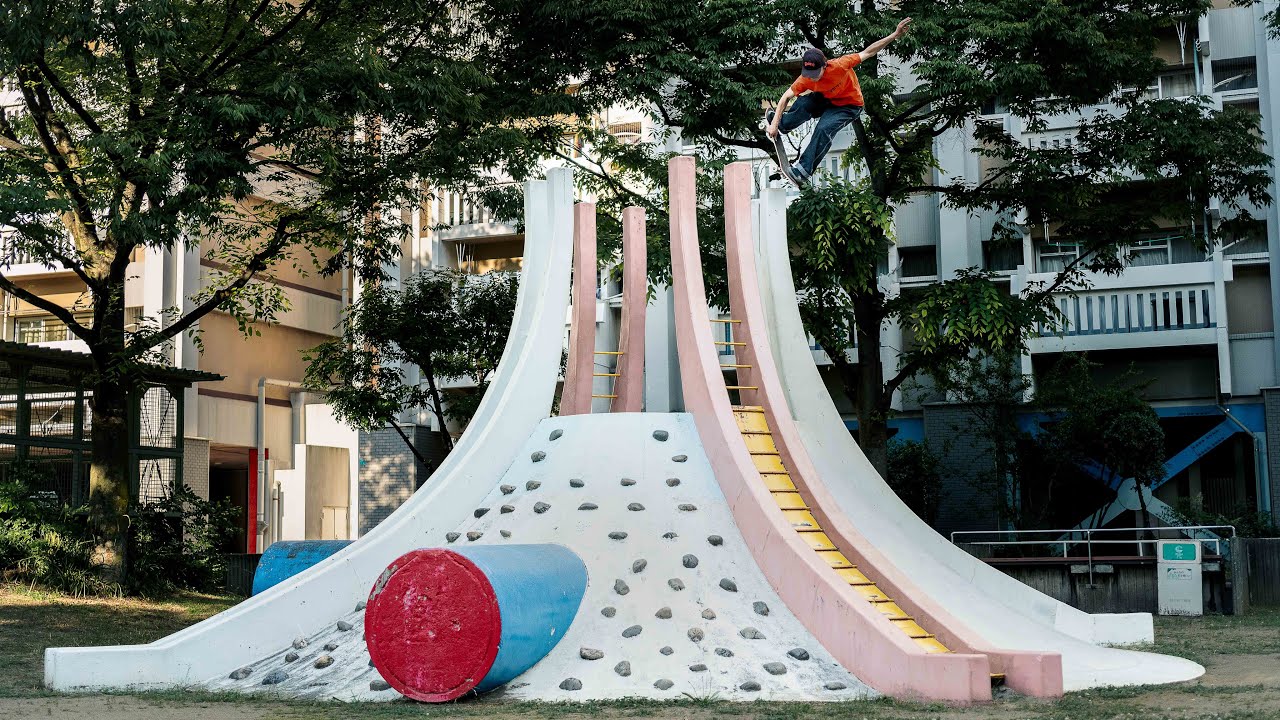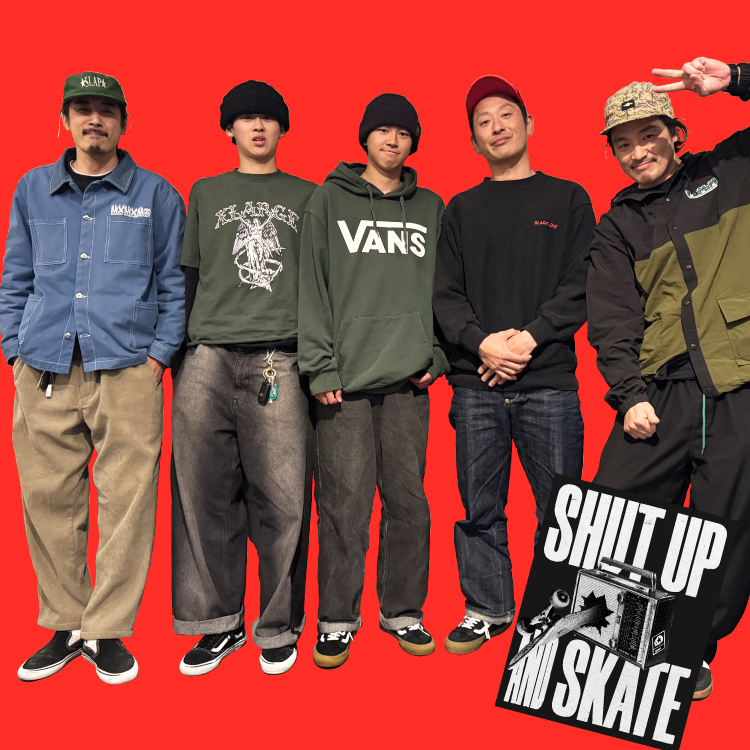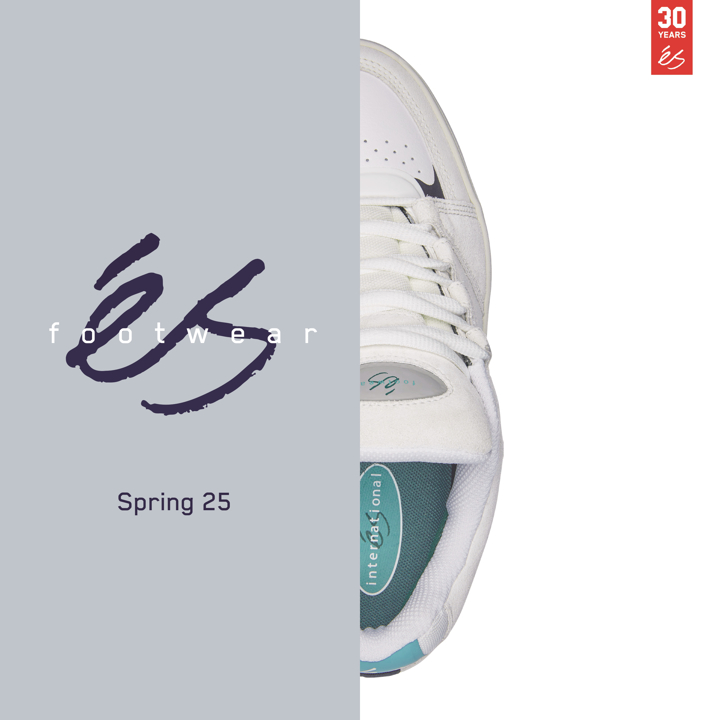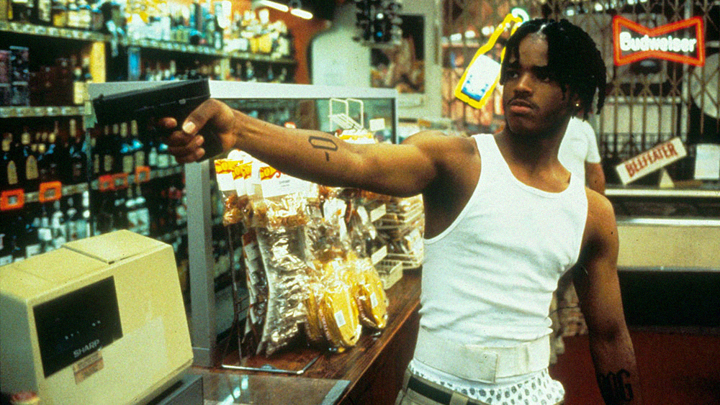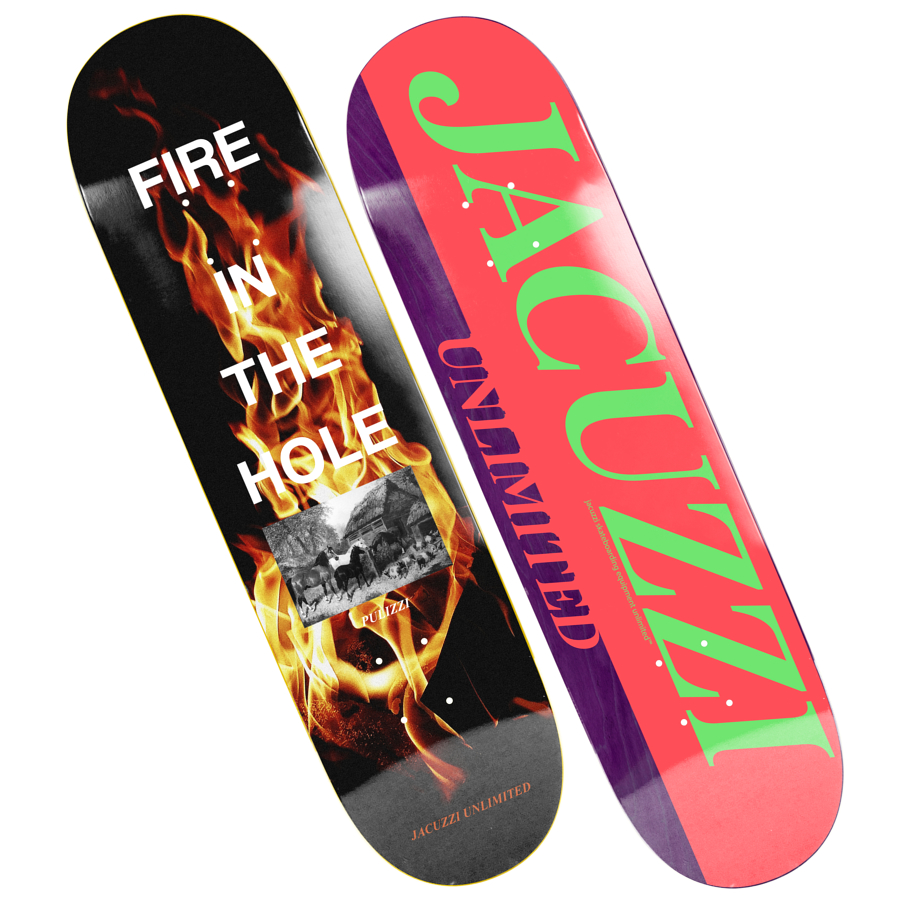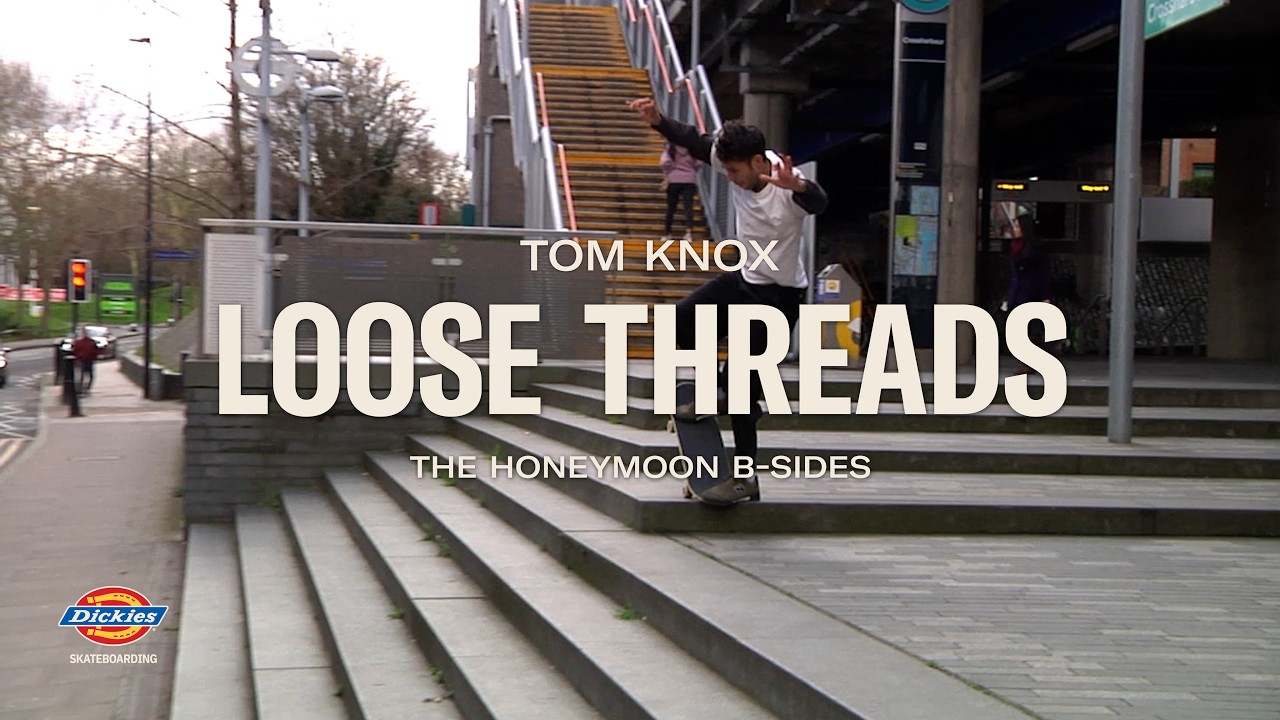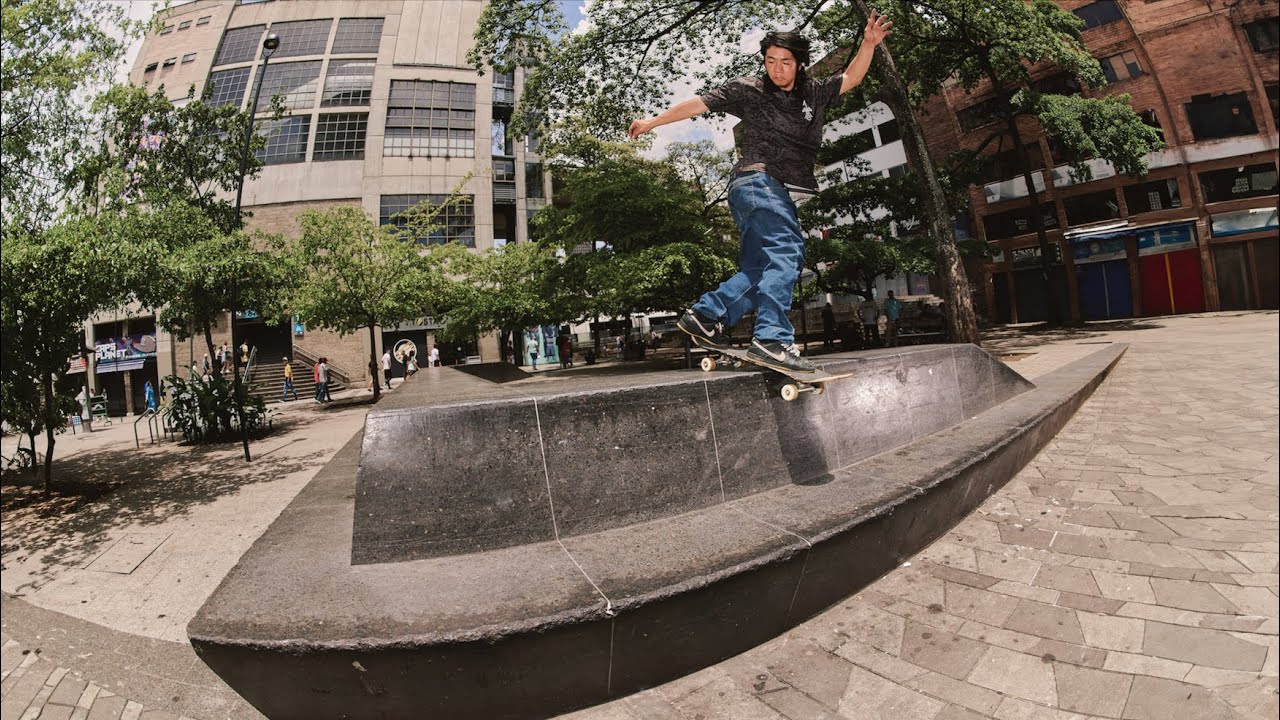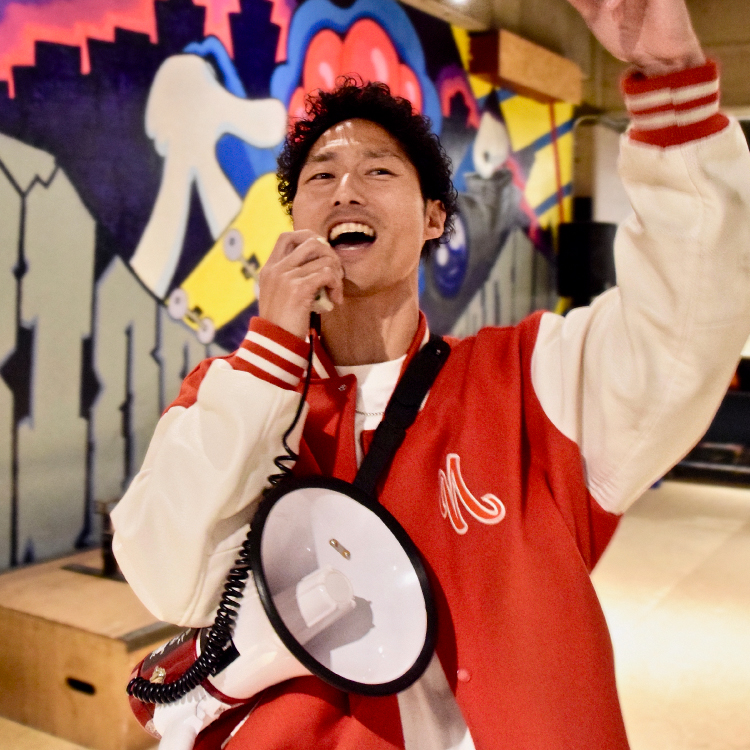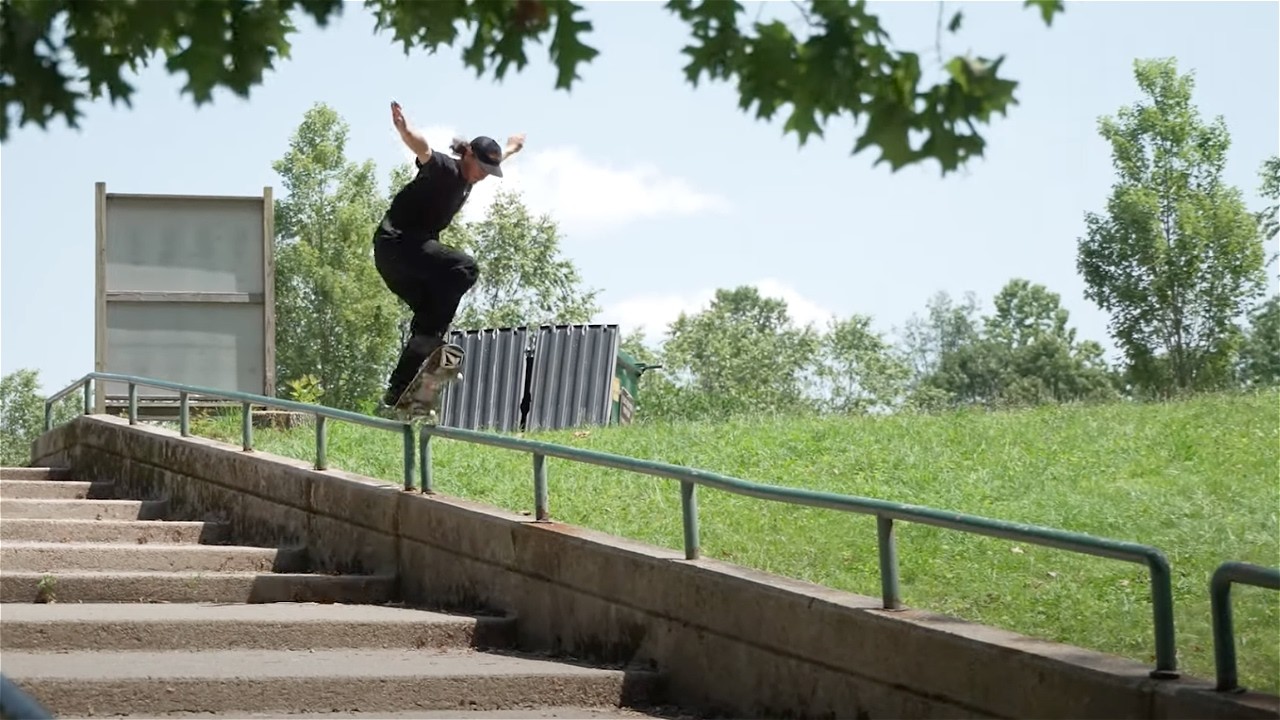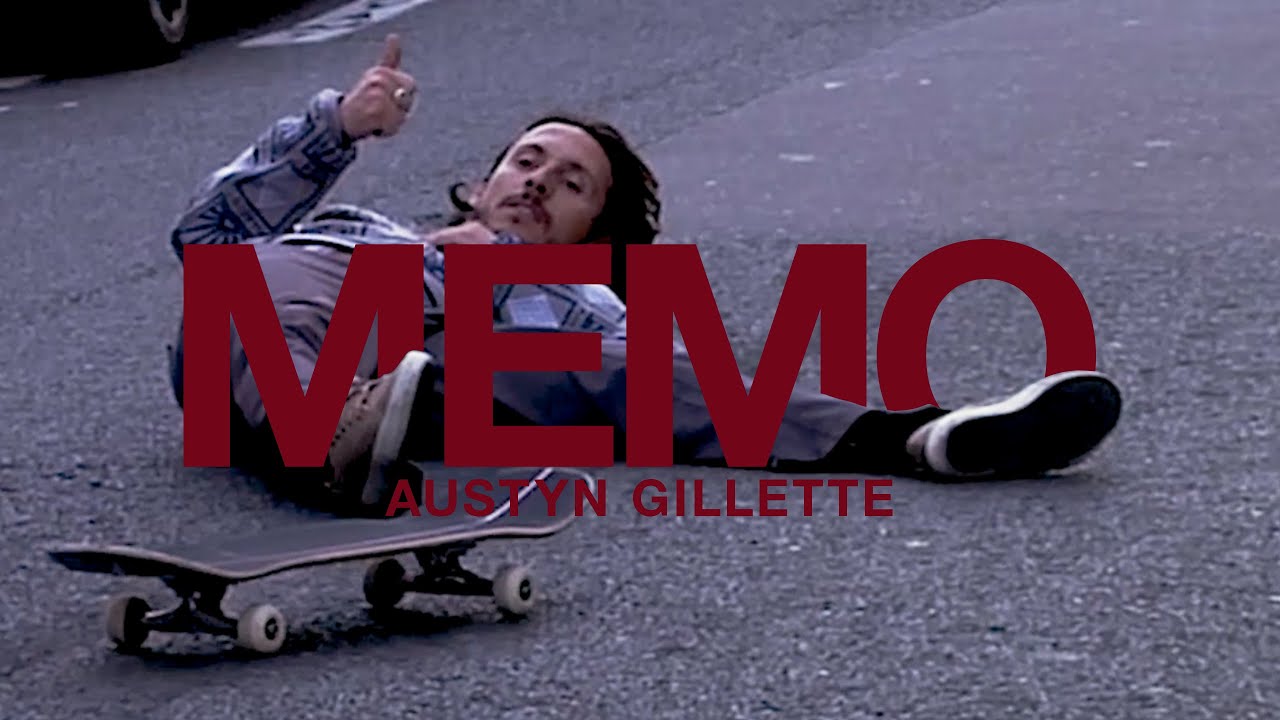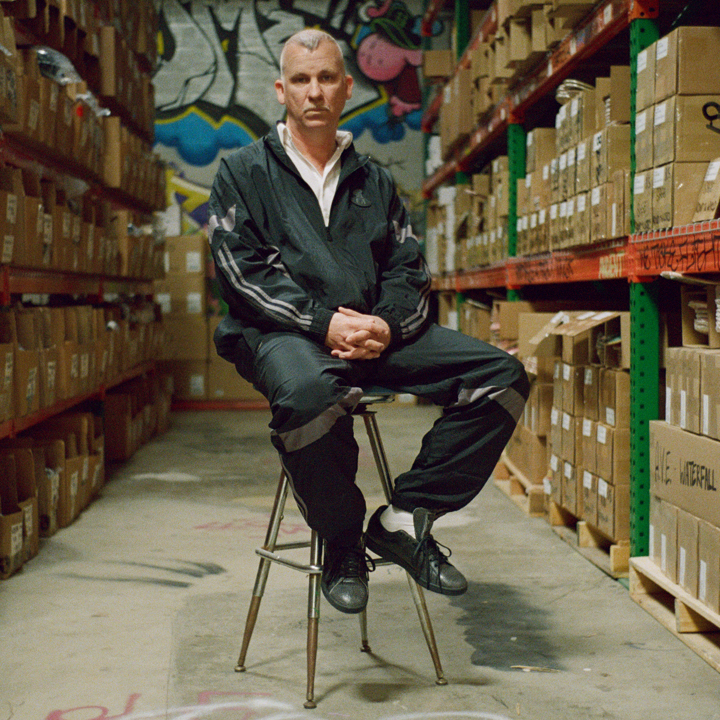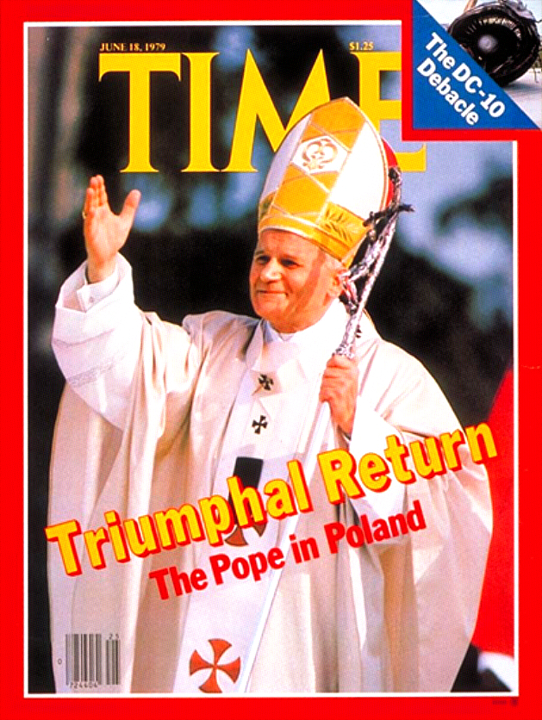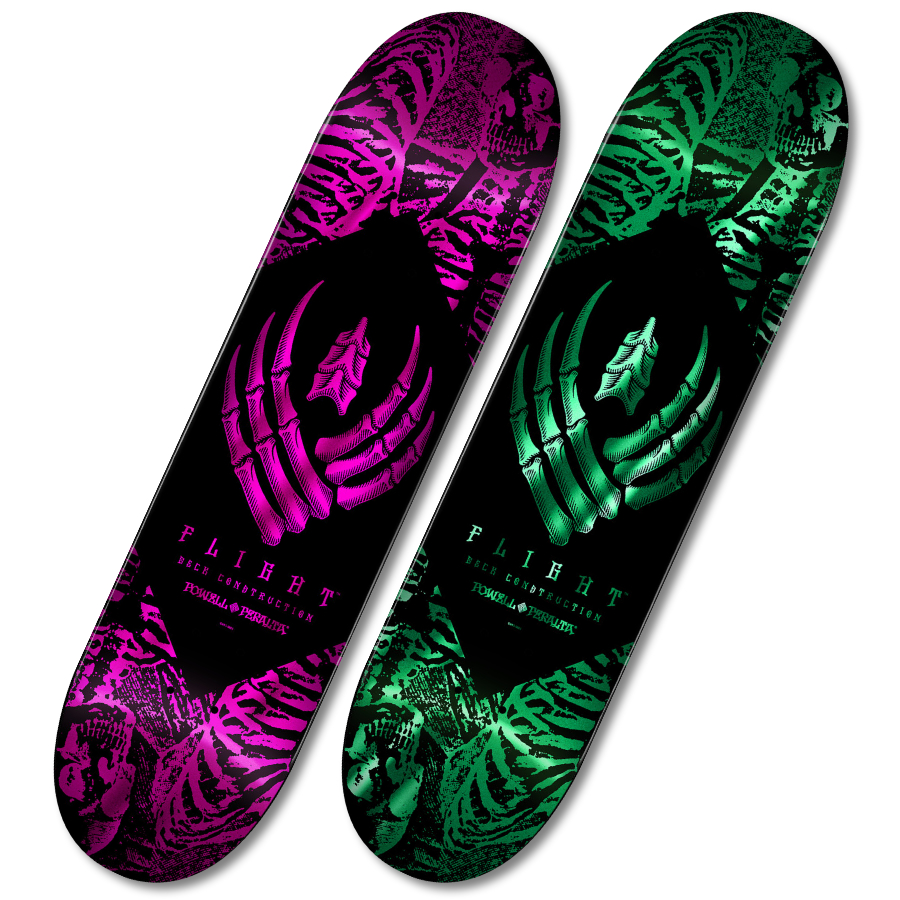A documentary featuring 4DWN, a non-profit organization based in South Dallas, Texas, is now available on the Dickies YouTube channel. We interviewed co-founders Rob Cahill and Mike Crum about how they're helping the community support through skateboarding.
──4DWN (ENGLISH)
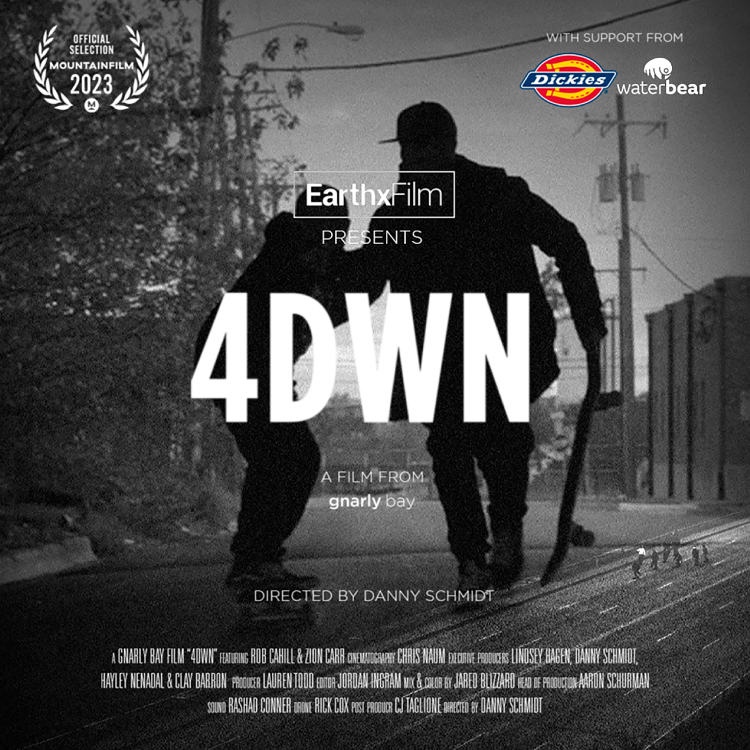
[ JAPANESE / ENGLISH ]
Photos courtesy of Lauren Todd
Special thanks_Dickies Japan
VHSMAG (V): Congratulations on your film. First, could you introduce yourself briefly and your background in skateboarding?
Mike Crum (M): I'm Mike Crum. Been skating since 1985. Got sponsored at a young age in skateboarding and turned pro when I was 16 for Vision. I'm a vert skater. Ended up on World Industries and some other brands and just kept my career going for quite a while. And still skating vert too.
Rob Cahill (R): I'm the same age as Crum and I grew up kind of all over Texas, mostly in rural places. Skateboarding got me out of rural Texas. It opened up my world. And then from there I was sort of invited into Hollywood stuff like fashion, entertainment, movies, commercials, things like that. I was a poor kid, so I always had to earn money and be in school and balance all those other things and family demands at the same time. Skateboarding opened up my world, broadened my horizon, introduced me to all these other opportunities. It helped me develop a set of skills, visualizing and problem solving and how to learn. So all that's going into what we do at 4DWN. There’s a career in skating after riding your board, luckily enough, and we're sort of pioneering what the nonprofits side of that could look like. That's what we're exploring now.
V: What's the story behind the name 4DWN?
M: We wanted something short and sweet. 4DWN, meaning four wheels on the ground.
R: It's definitely about putting four wheels down, rolling forward.
V: How did it start? It was a skate park at first?
M: It kind of started as a private deal in a way. I wanted my own vert ramp (laughs). So we started with that and then we started opening the doors and realizing everyone needed it too. Dallas doesn't really have a proper public skate park, which is insane. So we started with supporting the skate community as much as we could. And then we realized these kids need a lot more help than just skateboarding. So we started supporting them as a nonprofit. It's a business where you don't really sell stuff, you give stuff away and you get donations and partnerships and grants. Everything we do is free from skateboarding to our food distribution. There's a lot of pieces going on with what we do outside of skateboarding, but the heart of it is definitely skateboarding. Showing skateboarding the way we like it, not as commercialized or whatever, just what we've always loved about it.
V: You’re located in South Dallas. What’s it like there?
R: We call it the “urban armpit.” It's absolutely horrible to be honest. The worst part of town is the part that's most easily affordable. There's a lot to be said for being humble and laying low and being in places that makes your soul sort of come alive. You realize you have an opportunity to help and be a part of a community. And in the process of helping our community, we can help ourselves. So that's really at the heart of the matter.
M: It’s a really rundown industrial area. No open businesses around, a few rundown houses, no grocery stores, no nothing. And the warehouse was very not up to code. We did everything ourselves from electrical to plumbing to the leaks to everything. And it's been very hands-on and beautifying the place.
R: We built our own sanctuary, almost like building your own church. You need a place of refuge, you need a place of sanctuary for your culture. And once we created a place that could have skateboarding, art, music, food and have our friends there and do all the things that we like to do, it grew without being designed that way. It grew because there was such an extreme need for what we were doing and there were a lot of other people that could relate to our attitudes and values.
V: 4DWN is not just about skateboarding. You help out the community in a lot of different ways. Could you share what you do?
R: At this point we've evolved to be all about sustainable solutions for our people and our planet. We just so happen to be in the most affordable part of town because it's the least attractive part of town. And you got to ask yourself why. Well, there's been generational systemic institutionalized disparity. That means that it's a recreational desert, it's an infrastructure desert, it's a food desert, it's a maternal care desert. There are vast disparities between certain parts of town and other parts of town, and it's easy to see where the opportunities and access is and where it's not. So our programs are designed to provide opportunity and access, and to try to overcome a lot of the other disparities that we see. Like the old adage says, if a person is hungry, it's good to give them a fish. But it's better in the long run to teach them to fish. It’s not sustainable to only give them something, you have to teach them how to provide for themselves.
M: We have a 40-foot shipping container that was transformed into a cold storage. So during the week there's food being dropped off there from local farms, from grocery stores like Whole Foods. And then every Sunday we do the 4DWN food rescue. It's food distribution and volunteers come out. We package up boxes for families and they're amazing healthy food. We're feeding several hundred families every week.
R: It’s enough food for four people to live for four days. So that's a lot of food when you think about it. And the key about that is we're feeding people that don't have access to fresh, healthy food. This is not packaged food, it's not canned, it's not boxed, it's whole food. In addition to that, it's diverting it from the landfill. When food decays in the landfill, it creates methane, which is an extremely powerful greenhouse gas. Meanwhile, all the packaging, all the plastic, all the cardboard is going to waste as well. So we recycle the packaging, we compost the bad food and we distribute the good food.
V: I assume that there are a lot of people involved outside of the skate community. How did you get those people involved?
M: During the pandemic, we met some great people who we lent our space to, because during that time we couldn't be open for skateboarding. That's when I really started learning about the disparity and everything. And it morphed from there where we were doing as much as we could to help them. We started diving into the food distribution really hard and helping as much as we could. We were working with great people who came in. So outside of skateboarding, we've attracted some amazing organizations and people who worked with us.
R: I think what we realized during the pandemic was that we have a culture and a community that's built on skate values and attitudes. Skaters take action. We’re drawn to ingenuity. We love NBD. Skateboarding has been ahead of the predominant culture in terms of being inclusive. We're a little bit rebellious and we sort of question everything and we don't mind not fitting in with the predominant culture. Skaters always find our own way. We're not worried about breaking rules if it's something that we need to do. With those attitudes, I think a lot of people who aren't skaters, like artists and chefs, farmers, entrepreneurs, other leaders and activists and organizations, I think that set the cultural attitudes and values that were attractive to a lot of folks and it just continues to grow based on that.
M: And what's been really magical too is getting people there through skateboarding. Some families bring their kids to skateboard or do a skate lesson, they learn about everything else.
R: There's a certain openness when you're in skateboarding. It's funny because a lot of our skaters and skate families have become volunteers and a lot of our volunteers have tried to learn how to skate. So it's sort of a crossover scenario.
V: That's wonderful. And all the things that you do turned into a documentary film, how did that happen?
M: We did an event and one of the guys from the film company fell in love with the place. We kept in touch and he loved our story, especially when Rob gave him a tour and told him everything we were about.
R: We always redesign and rebuild the park every three years or whatever. When Crum had rebuilt the skate park for the fifth time, it coincided with a time that a film company had Stacey Peralta in town to show his film. As they brought Stacey Peralta by for our next grand opening, he immediately had enthusiasm for Crum and he loved what we were doing. It appealed to him and the producers and directors of that film company, which at the time was EarthX Film, they're very much concerned with environmental issues and things of that nature. So immediately on the spot they made that claim that they would do something with us. And there followed a huge event where we had Keegan Palmer, an Olympic gold medalist, and everyone there, and we showed films. Then after that they raised the money to create our film. Our film was shot exactly a year ago. They only came out for three days and shot the film. Our directors and producers and everyone are really wonderful people. We were lucky that they found us and they decided to make a movie. They paid for it, they produced it, everything.
M: And it's kind of similar to how we partnered with Dickies in a way. We did the Zumiez Best Foot Forward finals at our park in 2019. They wanted to search around Texas to find a spot and we didn't even have the room for them to do it inside. I walked them to the back and I go, “We could pour a slab and build the course out here.” So we did a huge event with them and Dickies was the big sponsor. They met us through that event and fell in love with the place as well.
R: I got to give Dickie so much credit because when they decided to really start supporting us was right when the pandemic was coming on and all we had was an ugly parking lot and a vision of what could be, and some ideas that had never been done before in skateboarding. But it all involved the core values of what Dickie was about. It’s about taking action, being ingenuity, working with community… that DIY kind of vibe. So luckily enough we met Dickies and that really was a game changer for us in a lot of ways.
M: They started out sponsoring the vert ramp. So we were finally able to make a beautiful vert ramp out of new wood. We call it the Dickies Vert Ramp. From there, there were courtyards and gardens made. With all the wood from Best Foot Forward, we built stages for deck areas. It's been a lot of work, but 2019 was when we really started expanding with other brands and partners.
R: What's so cool is that now we have the only big professional vert ramp in the country that's free and accessible to anyone. It’s not like you can just walk up to Tony Hawk's ramp and skate, you know what I mean?
M: Most vert ramps are kind of a specialty thing, so it's like in warehouses or Bob Burnquist’s backyard. But anyone can come and skate our vert ramp. A lot of the new generation, they haven't even seen a vert ramp. So it's definitely one of the first things you see when you come in. There is tons of street stuff and all that, but it's in the center of everything.
R: I think that building the Dickies vert ramp was very much a symbolic gesture during the pandemic that we were committed to getting things done, and a bunch of skaters could build this huge structure. And now we're completing the world's first and only Vert Ramp Vertical Farm.
V: Yes, I wanted to ask you about that. What’s a Vert Ramp Vertical Farm?
R: It's this massive agriculture space, which we're going to be using as an agribusiness incubator and growing amazing food under the vert ramp first and only in the world.
M: The space under the deck is usually closed in. We did all of our cross bracing up top so we have a nice 10-foot-deep, 50-foot-long open space. We built an amazing structure under there that's going to grow beautiful stuff.
V: That sounds amazing. The film follows a young boy Zion Carr, and I read that he was going through a lot when you guys were working on the film.
R: What was not covered in the film because there wasn't enough time to properly address it, was that Zion was going to be taking the stand, live on national television. He was the sole witness to the murder of his aunt Atatiana Jefferson, who was playing video games with him in her bedroom three years prior. If you recall the summer of 2020, that's when George Floyd and Breonna Taylor happened. At the time, Texas was a place where things like this happen and there's no accountability. We're still part of the old South. We're part of the country that seceded during the civil wars over slavery. There's still institutionalized systemic racist systems in place to be honest. So this young man was going to be taking the stand about two weeks after the film and he did it. He did it masterfully and based on his testimony, officer Aaron Dean was convicted. And that's a very rare thing to happen in Texas or throughout the south of the United States at all. I would encourage everyone to look up Zion Carr and his aunt is Atatiana Jefferson, and you can support them through the Atatiana Project (www.instagram.com/atatiana_project/), which is another organization that we work with.
V: That’s heavy.
R: Zion was just a kid skateboarding at 4DWN with his brother Zayden and we knew about this story. It took a lot of community activism to even have a trial at all, that this woman got shot in her own bedroom playing video games and she died right in front of him. So in the film, we all knew this was happening. We were showing him love and support because at the same time his mother, Amber Carr was experiencing heart failure and everyone knew that her likelihood of surviving wasn't good. We were talking to her about the film and the possibility of Zion being cast in it. She said, “Rob, I don't think I'm probably going to be around when this film comes out. But I think it would be great for my kids to have something that they're in and maybe I can be in.” So the scene where you hear her talking from the hospital and Zion and Zayden are there, that's a real scene. That was real life. She was in the cardiac ICU and unfortunately, she did die, but she got to see the jury convict the officer. We love her and we acknowledge her very much. Zion and Zayden are lucky now to have her sister who's now devoted her life to taking care of the boys. Zion and Zayden are still at 4DWN all the time.
V: That tells how important 4DWN is for them and all the people who need support. For the film, Dickies is watching all donations 1:1, right?
M: It matches dollar for dollar up to a $100k. So whatever amount gets donated, Dickies will donate the same amount. We're very thankful.
V: Great system. What pushes you to keep going at 4DWN?
M: Everything we're doing feels right. You put so much hard work and love into it and everyone who's helped build the place and anyone who goes there, everyone's helping. The community is amazing at 4DWN and it makes you want to be a better person. It makes you feel good. It's what every community should be in a way. All different walks of life, all different races. Old, young, black, white, it doesn't matter. It's just good people working together.
R: Yeah, there you go. That's Crum. Always having his heart in the right place. America is really weird right now. It's very polarized. I think what we're doing is trying to be a total counteraction of that and show how people can come together, help themselves and the community at the same time.
M: Learn about each other, learn about where different people come from, what they went through, how you can help. That's what I've always loved about skateboarding, getting introduced to all different walks of life instead of just one thing.
V: It's really great to see everything starting from skateboarding and expanding to different things.
R: It all stays within that same drive. When you're skating, you always want to go do something better, bigger, take it further, take it faster. That's that skateboarding ethos. So that continues to be those values, those attitudes, those ways of being. That's really what drives it still. As we get older, maybe we're not on our skateboards as much as we used to. But we're still taking that energy into what we're doing.
V: What do you want the viewers to get out of the film?
M: To be inspired knowing that you can make a change and you can help people by working with people and being open-minded to other people's needs and where they come from. Some might think, “How are all these different types of people hanging out together?” It's because they're good people and it's how the world should be.
R: Especially in America right now, people think if they have different beliefs it's wrong to work together. What we're trying to say is, “No, couldn't we all agree on something as simple as feeding people is better than throwing food away?” We don't have to agree on everything. We can just start with that. And with that, it becomes a myriad of possibilities. We work with brands and people based on shared values. We don't have to look alike, we don't have to come from any similar background. If we can just connect at a value level, all the surface level stuff will take care of itself.
Donate here: https://donorbox.org/4dwn-documentary
4DWN
@4dwn_org
4DWN is a non-profit organization founded by Rob Cahill and Mike Crum. Based at a skate park in South Dallas, they provide food distribution and other community support through skating. A documentary about their activities is available on Dickies Japan's YouTube channel with Japanese subtitles.



